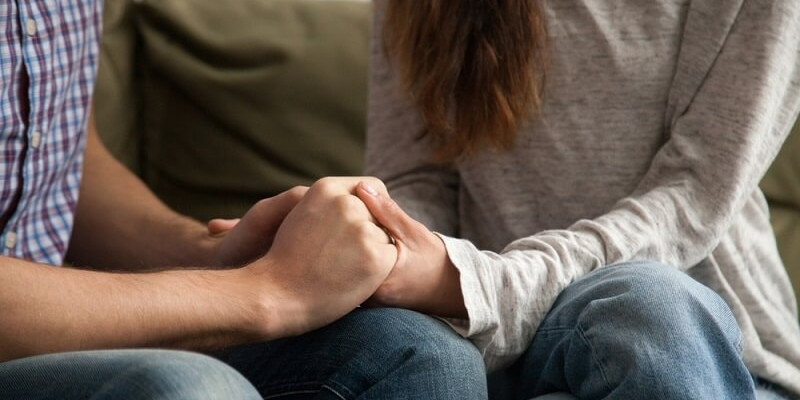Compassion in Dating: Supporting Your Partner with PTSD

Dating is a journey of discovery, vulnerability, and building connections. When a partner has Post-Traumatic Stress Disorder (PTSD), navigating this journey requires an extra layer of understanding, patience, and compassion. PTSD can affect individuals who have experienced or witnessed traumatic events, and it can impact their emotional well-being, behavior, and communication. In this article, we will explore the importance of compassion in dating when one partner is dealing with PTSD, providing insights, tips, and guidance for creating a supportive and loving relationship.
Understanding PTSD and Its Impact

Before delving into how to support a partner with PTSD, it's crucial to understand the nature of the disorder and its potential impact on an individual's life. PTSD can arise from a wide range of traumatic events, such as accidents, abuse, combat, or natural disasters. The symptoms of PTSD can be distressing and may include flashbacks, nightmares, hypervigilance, mood swings, avoidance behaviors, and difficulty concentrating. These symptoms can affect relationships, communication, and emotional well-being.
The Foundation of Compassion
Compassion is a fundamental quality that forms the foundation of any healthy relationship, particularly when one partner is dealing with the challenges of PTSD. Compassion goes beyond empathy; it involves actively seeking to understand your partner's experiences, emotions, and needs. For someone with PTSD, having a compassionate partner can foster a sense of safety, trust, and emotional connection.
Educate Yourself
To provide meaningful support, it's important to educate yourself about PTSD. Learning about the disorder, its symptoms, triggers, and coping mechanisms can help you better understand your partner's experiences. This knowledge empowers you to respond in ways that are sensitive and appropriate. However, remember that everyone's experience with PTSD is unique, so remain open to your partner's perspective.
Open and Honest Communication
Open and honest communication is the cornerstone of any successful relationship, and it becomes even more critical when one partner has PTSD. Encourage your partner to share their thoughts, feelings, and experiences with you. Create a safe space where they feel comfortable expressing themselves without fear of judgment. Active listening and validation are key components of effective communication.
Respect Boundaries

People with PTSD often have specific triggers that evoke distressing memories or emotions. Respecting these boundaries is essential. If your partner communicates their triggers or areas of sensitivity, make an effort to avoid those topics or situations. Respecting boundaries shows that you are committed to their emotional well-being and helps create a safe environment.
Patience and Understanding
Dealing with PTSD can be challenging for both individuals in the relationship. There may be times when your partner experiences mood swings, emotional withdrawal, or heightened anxiety. During these moments, practicing patience and understanding is crucial. Remember that their reactions are not necessarily directed at you; they are a response to their internal struggles.
Avoid Trivializing or Minimizing Experiences
One of the most harmful things you can do is to trivialize or minimize your partner's experiences. Avoid statements like "Just get over it" or "It's not a big deal." Such responses invalidate their feelings and experiences. Instead, offer validation and empathy. Phrases like "I'm here for you" or "Your feelings are important" convey that you care and understand.
Encourage Professional Help

While your support is valuable, you are not a substitute for professional help. If your partner's PTSD symptoms are impacting their daily life and well-being, encourage them to seek therapy or counseling. Offer to accompany them to appointments or assist in finding suitable resources.
Practice Self-Care
Supporting a partner with PTSD can be emotionally demanding. It's essential to prioritize your well-being as well. Engage in activities that recharge you, maintain your support network, and communicate your needs to your partner. Remember that taking care of yourself allows you to better support your partner.
Celebrate Progress
Recovery from PTSD is a journey marked by progress and setbacks. Celebrate even the smallest steps your partner takes toward healing. Recognize their efforts and acknowledge their growth. This positive reinforcement can boost their confidence and motivation.
Be Prepared for Triggers
Triggers are stimuli that evoke traumatic memories or intense emotional reactions. These triggers can be seemingly innocuous things like sights, sounds, smells, or situations. As you spend more time with your partner, you'll likely become aware of their triggers. Being prepared to support them during trigger episodes involves remaining calm, providing reassurance, and helping them use coping strategies.
Maintain Open Lines of Communication
Regularly check in with your partner about their feelings, needs, and the state of their mental health. Ask how they're doing and if there's anything specific they need from you. This ongoing communication demonstrates your commitment to their well-being and allows you to adjust your approach as needed.
Foster a Safe Environment
Creating a safe and nurturing environment is essential for any relationship, but it's especially important when one partner has PTSD. This environment includes emotional safety, where your partner feels comfortable expressing themselves without fear of judgment or criticism.
Seek Couples Therapy
Couples therapy can be incredibly beneficial for partners navigating PTSD within a relationship. A trained therapist can provide guidance, tools, and strategies to enhance communication, manage triggers, and strengthen the bond between partners.
Balance Boundaries and Intimacy
Intimacy can be both physical and emotional. It's important to strike a balance between respecting your partner's boundaries and nurturing emotional intimacy. Always prioritize your partner's comfort and communicate openly about your desires and boundaries as well.
Practice Mindfulness and Stress Reduction
Mindfulness techniques and stress reduction practices can benefit both partners. Engage in activities like meditation, deep breathing exercises, or yoga together. These practices can help manage stress and anxiety, benefiting both your partner's mental health and the overall health of your relationship.
Conclusion: Love and Empathy as Pillars of Support
Supporting a partner with PTSD requires a deep well of love, empathy, and patience. The journey may be challenging at times, but by fostering open communication, understanding triggers, respecting boundaries, and prioritizing self-care, you can create a relationship that thrives on compassion and resilience. Remember that you are not alone in this journeythere are resources, therapists, and support networks available to guide you and your partner toward healing, growth, and a lasting connection built on a foundation of compassion.




